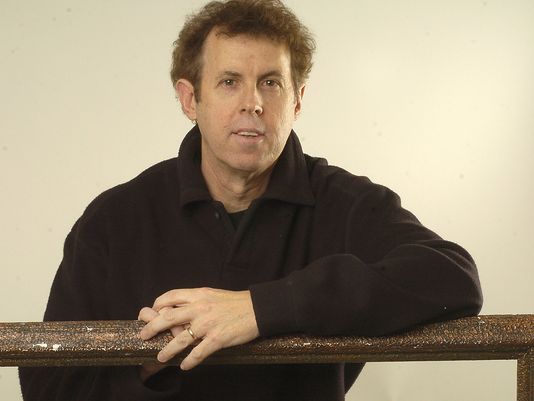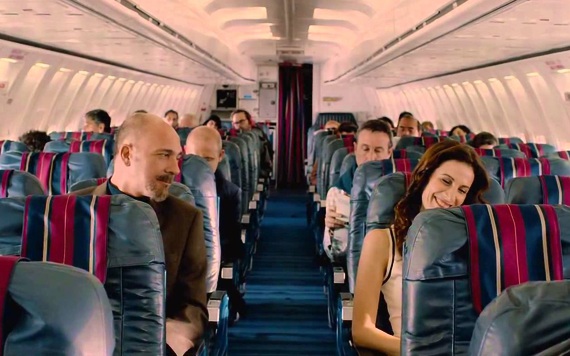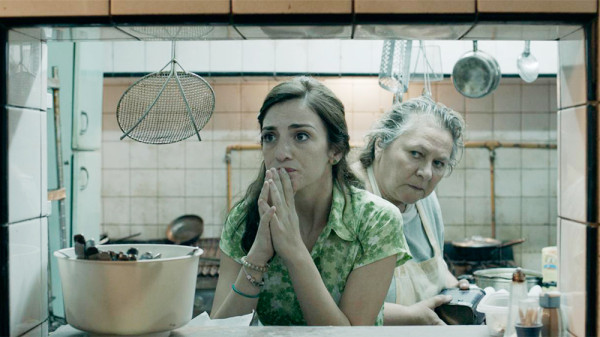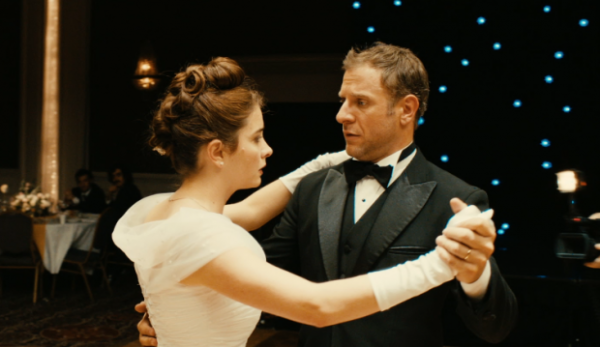Damian Szifron’s Spanish-language film from Argentina, Wild Tales, is dark and uproarious. An Academy Awards finalist for best foreign movie, it’s composed of six stand-alone vignettes turning on the dark side of human nature. The unifying theme is vengeance, but sub-themes revolve around rage, greed, despair, corruption, passion and infidelity.

Quite a combustible mix.
Scheduled to open in Canada on March 6, Wild Tales lives up to its enticing name. Only a person with a vivid mind and a pessimistic outlook on humanity could have conceived such outlandish but plausible stories.
In the first tale, passengers aboard a commercial airliner discover they know the same man, Gabriel Pasternak, who never shows his face on the screen. Judging by their candid comments, Pasternak was a terrible student and a horrible failure later in life, with absolutely no redeeming features.

But now, they discover, he’s the cabin chief on the plane, holed up in the locked cockpit. As the aircraft wobbles, frightening the passengers, they realize their lives may be in danger. Is Pasternak, scorned all these years, bringing down the airplane to wreak vengeance on his detractors?
The second story unfolds in a dingy restaurant on a rainy night as a customer comes in for a meal. The waitress is aghast when she sees him. He’s a loan shark who ruined her family and, understandably, she’s reluctant to serve him. Gangster or not, he’s a despicable character.
The cook, an elderly woman in an apron, comes up with a solution. She’ll lace his food with rat poison and exact vengeance on her behalf. The waitress has a conscience and doesn’t want to be associated with a homicide. The cook, however, is detrmined to murder him. Society will be better off without him, she says.

The plot thickens when his son joins him for supper. Now, more than ever, the waitress is convinced that the loan shark should be spared. The son is innocent and should not have to pay for his father’s crime. How will this end?
In episode three, the driver of an expensive German sedan curses as he tries to pass a slow-moving, lane-weaving, beat-up car on a lonely stretch of highway. Finally, he overtakes him. As he whizzes by, he lets go with a stream of expletives and an upraised finger.

Much to his annoyance, he gets a flat. As he tries to replace the tire, the other car pulls up in front of him. It’s payback time. Realizing he may be at risk, he runs into his car and locks the door. As he sits petrified behind the wheel, his mean-looking stalker proceeds to smash his vehicle and defecate on it. Eventually, the pair resort to fisticuffs to settle their dispute, which soon turns primal, violent and ugly.
The fourth story starts on a fairly innocuous note. A demolition engineer, just having successfully toppled a commercial building, phones his wife to inform her he’s on his way back home for their daughter’s birthday party. En route, he stops to buy a cake, only to discover that his car has been towed away.
At the ticket office, he learns he has to pay a hefty fine. He protests, saying the no-park area was not designated with the mandatory yellow line. The clerk is indifferent to his plea. Pay now or pay interest on the required payment. He feels cheated and robbed by a corrupt and unfeeling system. In a fit of anger, he smashes a glass partition, leading to his arrest and the ruination of his career. But amid the darkness, there are unexpected silver linings.
In the fifth tale, a wealthy man tries to save his son from imprisonment. The son, in a hit-and-run incident, kills a mother and her infant child. As the son sobs inconsolably, his father, in consultation with the family lawyer, devises a Machiavellian plan to save the day. He’ll pay a pliable employee $500,000, a fortune for a working-class guy, if he takes the rap for the accident. The lawyer assures him he’ll be out of jail within a year and a half.
The fly in the ointment is that the prosecutor assigned to the case wants a cut, too. For $1 million, he’ll dispose of the matter. Fine. But then the lawyer and the employee ask for more money, annoying the father. Is there no end to avarice? Is a deal still possible?

Szifron’s last story takes place at a joyous wedding. Bride and groom are deliriously happy until she finds out he recently had sex with one of the guests, a tall, leggy woman. Under sharp questioning, he admits his sin, insisting it was only a meaningless fling.
Dissatisfied with his explanation, she leaves the hall in a huff, boiling with fury and leaving the guests wondering what just transpired. What happens next is unpredictable, the stuff of a rich and unconventional imagination.
This vignette, brimming with larger-than-life characters and outsize situations, is the best of the lot. The weakest is the first one. The rest are good enough to keep you entranced and fixed to your seat.
In Wild Tales, Szifron has made a film that stamps him as a director to be watched.
